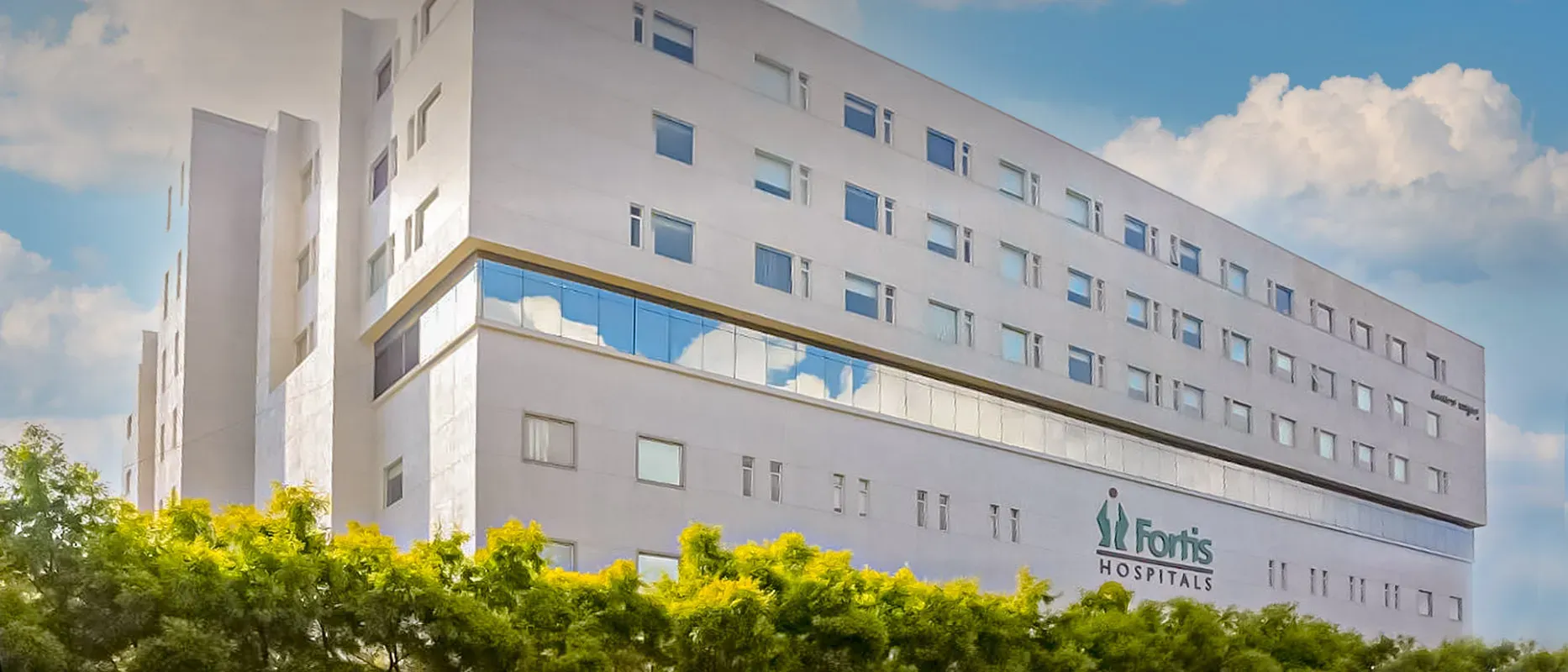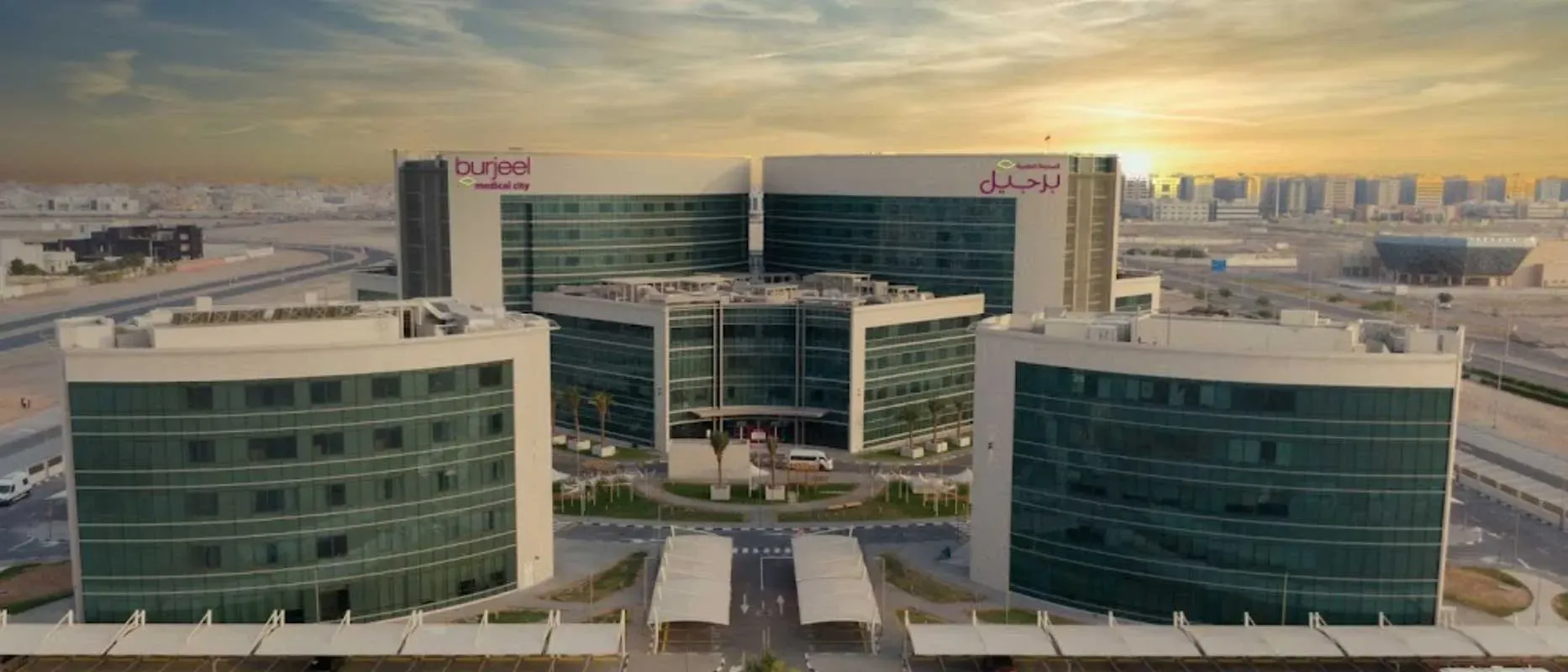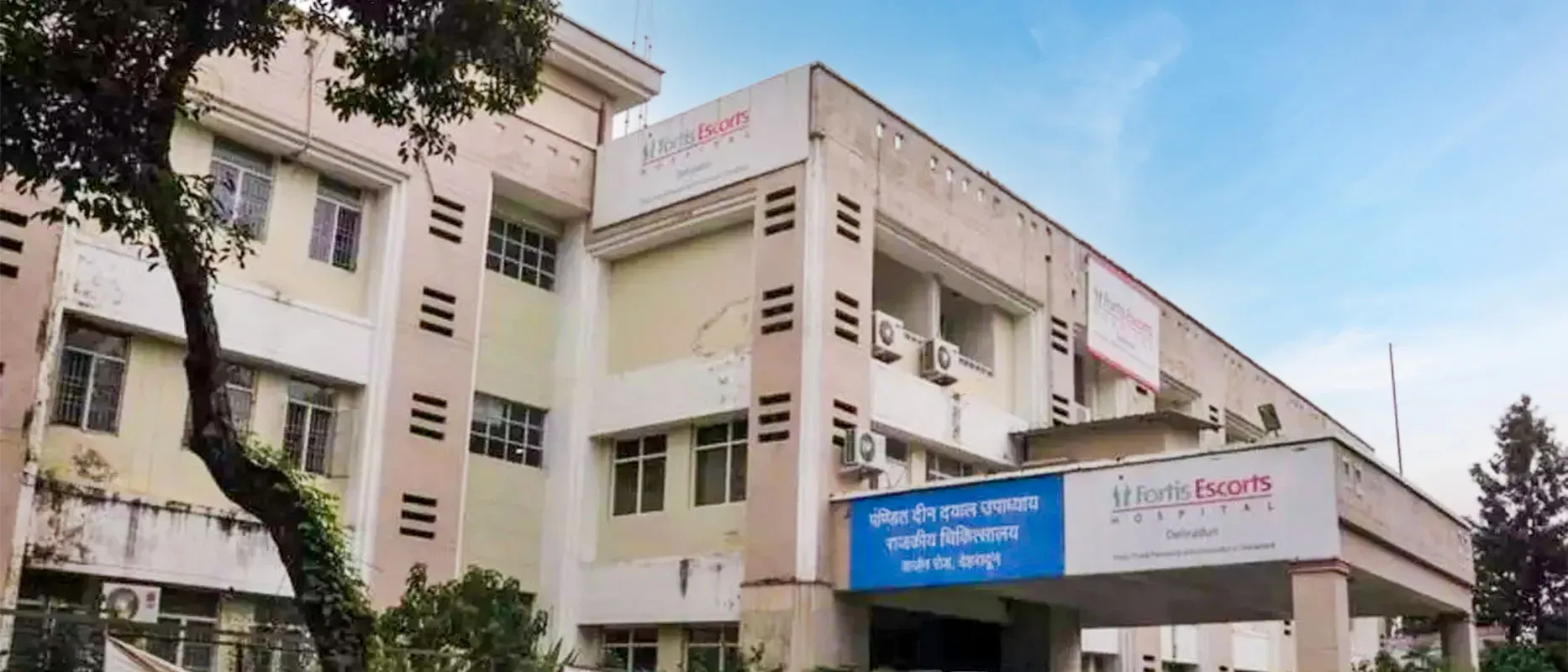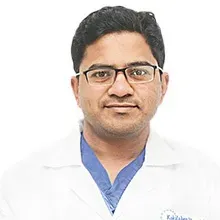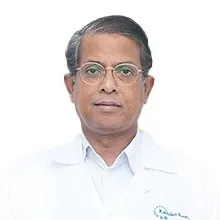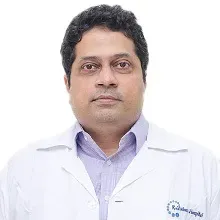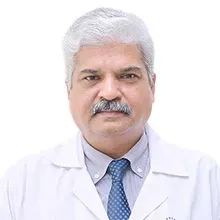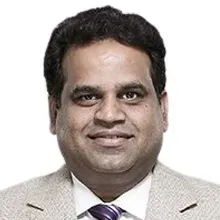Overview of Prostate Cancer Treatment in India
The prostate is a walnut-shaped gland in men located just below the bladder. When the cells in the prostate begin to grow and multiply abnormally, it can lead to the development of prostate cancer. This abnormal growth can cause enlargement of the prostate that leads to symptoms of pain and difficulty during urination, as well as the presence of blood in the urine. Prostate cancer progresses slowly, and as a result, doctors often observe the nature of cancer cells before starting treatment options such as chemotherapy or radiation therapy.
Cost of Prostate Cancer Treatment in India
The cost of Prostate Cancer Treatment in India ranges from ₹ 3,74,000 to ₹ 6,50,000. The cost can vary according to the experience of the oncologist, the patient’s age, the severity of the disease or stage of cancer, the overall medical condition of the patient, and complications of treatment.
| Prostate Cancer Treatment Cost in India |
Min in INR |
Max in INR |
| Prostate Cancer Treatment Cost |
₹ 3,74,000 |
₹ 6,50,000 |
| Chemotherapy |
₹ 40,000 Per Session |
₹ 54,000 Per Session |
| Prostectomy |
₹ 3,72,000 |
₹ 2,31,000 |
| Radical Prostectomy |
₹ 2,40,000 |
₹ 3,20,000 |
Types of Prostate Cancer Treatment in India
- Chemotherapy
- Immunotherapy
- Surgery
- Radiation therapy
- Hormonal therapy
- Active surveillance
- Focal therapies
Chemotherapy
Chemotherapy is the use of medications to kill cancer cells, typically by preventing the growth, division, and production of new cancer cells. Both with metastatic prostate cancer who have recently been diagnosed and who, with constantly growing tumor may benefit from chemotherapy.
Immunotherapy
Immunotherapy strengthens your immune system's capacity to attack cancer cells in order to combat the disease. Sipuleucel-T vaccination therapy may be an option for some men with constantly growing metastatic prostate cancer who have no or very few cancer symptoms and typically have not received chemotherapy.
Surgery
Some surgical procedures used for prostate cancer in India are as follows:
Prostatectomy: the removal of a prostate gland and seminal vesicles alongside lymph nodes.
Laparoscopic prostatectomy: the less painful by small incision with insertion of camera and robotic instrument to remove prostate gland.
Bilateral orchiectomy: the surgical removal of both testicles in advanced stages of the disease.
Radiation Therapy
External-beam radiation therapy: it uses the machine outside which projects the x-rays directly on the cancerous cells.
Proton therapy: is also a type of external radiation but it differs in the way that it uses protons instead of the beam of x-rays.
Brachytherapy: this is internal radiation which involves the insertion of a radioactive material into the cancer area. The radiation from the radioactive material kills the cancerous cell.
Hormonal Therapy
In hormone therapy some medications are used to block the production of testosterone hormone. Some of these medications include:
LHRH agonists: luteinizing hormone releasing hormone agonists are used to block the testosterone production by the testicles.
AR inhibitors: androgen receptor inhibitors block the testosterone effect by inhibiting the receptors used for its functioning.
Active Surveillance
Patients who are diagnosed at an early stage and have a very low risk are usually not treated because of the adverse effects of treatments such as radiation and chemotherapy. So, patients are usually monitored gradually for any worsening signs. If the cancer worsens, typical treatment should then start.
Focal Therapies
Cryosurgery: This treatment involves local heat and cold therapy to destroy cancer cells without treating normal cells. It is used for low- to moderate-risk cancers.
HIFU: (high-intensity focal ultrasound) uses sound radiation to destroy cancer cells and limit the effect on normal cells. But it may not be the treatment of choice for some people despite its appealing qualities.
Diagnosis & Cost of Prostate Cancer Treatment in India
PSA Test
Prostate specific antigen (PSA) levels in the blood are determined by this blood test. The prostate produces a chemical called PSA and men with prostate cancer may have elevated blood PSA concentrations.
DRA
A doctor does a digital rectal examination (DRE) by inserting a gloved, greased finger into a man's rectum to feel the prostate for anything unusual, like cancer.
Biopsy
A biopsy is the removal of a tiny sample of tissue for microscopic analysis. The prostate will be sampled for biopsies in a number of locations. This is carried out to guarantee that a high-quality sample is obtained for analysis.
Transrectal Ultrasound TRUS
The prostate is examined by a probe that a doctor puts into the rectum using sound waves that the prostate reflects. The reflecting waves can give the idea of the poor morphology.
MRI (magnetic resonance imaging)
The size of the tumor can be determined using an MRI, and the prostate or the entire body might be the focus of the scan. Prior to the scan, a patient is given an injection of a specific dye called contrast medium into a vein in order to provide a clearer image.
Prostate Cancer Treatment Cost in India
The cost of treating prostate cancer in India ranges from ₹ 3,74,000 to ₹ 6,50,000. The costs can vary according to some factors such as the facility of hospitals and the condition of the patient. Here are the costs for several treatments in India:
Cost of surgical Treatment for Prostate Cancer in India
| Surgical Treatment Cost for Prostate Cancer in India |
Min in INR |
Max in INR |
| Laparoscopic prostatectomy |
₹ 4,33,000 |
₹ 5,00,000 |
| Robot-assisted prostatectomy |
₹ 6,19,000 |
₹ 6,65,000 |
| Radical prostatectomy |
₹ 2,71,000 |
₹ 3,65,000 |
Cost of Prostate Cancer Treatment in Different Cities of India
| Prostate Cancer Treatment Cost in Cities of India |
Min in INR |
Max in INR |
| Bangalore |
₹ 1,82,000 |
₹ 2,78,000 |
| Delhi |
₹ 1,82,000 |
₹ 2,40,000 |
| Mumbai |
₹ 1,92,000 |
₹ 2,88,000 |
| Gurgaon |
₹ 1,88,000 |
₹ 2,83,000 |
| Chennai |
₹ 1,88,000 |
₹ 2,71,000 |
| Hyderabad |
₹ 1,85,000 |
₹ 2,90,000 |
Symptoms & Risk Factors of Prostate Cancer Treatment in India
- Having a poor urine flow.
- Difficulty starting to urinate.
- Straining.
- Urinary incontinence.
- Need to get up frequently during the night to urinate.
- UTI (urinary tract infection).
- Blood in urine.
- Enlarged prostate gland.
- Pain during urination.
- Inability to erect penis.
Risk Factors of Prostate Cancer
Age : Prostate cancer is frequently present in older adults usually after 50 years of age.
Family History : It has been studied that about 20% of victims of prostate cancer report a family history, which may develop because of genes and also for a same subjection to certain carcinogens, drugs and common lifestyle habits.
Genetic Factors : The X chromosome is also thought to play a role in the inheritance of prostate cancer. The X chromosomes have the androgen receptors so they show a positive correlation with prostate cancer.
Diet :
Unrefined animal fat: Numerous ecological research studies have revealed a link between meat, fat, and dairy consumption per capita and prostate cancer.
Red Meat: The positive correlation between using the excess of red meat and prostate cancer have been shown under research studies.
Calcium, dairy products: dairy products have often been linked to an increased risk of prostate cancer. Males are at an increased risk of prostate cancer from both calcium from supplements and dairy.
Vitamin D deficiency: it has been suggesting that vitamin D deficiency might increase prostate cancer risk.
Alcohol Consumption and Smoking : More than 3 drinks per day shows risk factors of many types of cancers including prostate cancer. The link between smoking and increased risk of prostate cancer may be hormonal or hereditary in nature. For instance, men who smoke tend to have greater amounts of circulating sex hormones, which may raise the risk of prostate cancer.
Obesity : High body mass index (BMI) is linked to more aggressive and advanced prostate cancer as well as a worse prognosis.
Top Hospitals for Prostate Cancer Treatment in India
Shaping the future of the healthcare institution and establishing the path to accomplishment.
Kokilaben Dhirubhai Ambani Hospital and Medical Research Institute Mumbai,India
Book Appointment
Top Doctors of Prostate Cancer Treatment in India
Empower your Health with the Expertise of Leading Medical Professionals.
Dr. Bejoy Abraham
Department of Gastro & Minimal Access Surgery & Urology
Consultant
Book Appointment
Check the Prostate Cancer Treatment in India by Various Hospitals
Be the change and be an opportunist in transforming healthcare.
How Ortil Helps Your Treatment Planning
Guiding your Journey from Discovery to Treatment Planning and Beyond.
Discovery
Get a consultation to discover about your treatment
Pre-Treatment
Admission to the best hospital and all pre-treatment facilities
Post Treatment
Get post-treatment follow-up care with medicine fulfillment
Treatment Planning
Hassle-free treatment planning with package & cost estimations
in-treatment
world-class quality procedures and equipment for treatment













